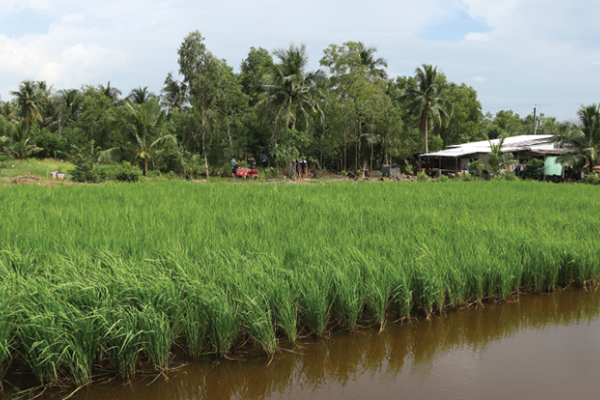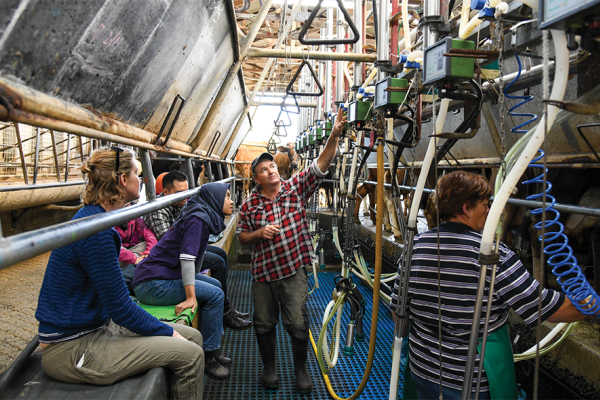Some of the very first projects that ACIAR implemented focused on problems associated with grain storage. In the 1970s, the United Nations Food and Agriculture Organization (FAO) identified post-harvest losses as a priority research area. Many developing countries were reporting significant losses of grain due to poor storage conditions, with the consequence of reduced food availability.
At the time, international agricultural research focused mainly on increasing the yields of the world’s staple crops. However, as more and more grain was produced and harvested, the technology and capacity to safely store the additional grain had not developed at the same pace. Director of ACIAR (1989–1995) and entomologist, Dr George Rothschild, recalled the issue.
‘You only had to drive around countries in South-East Asia at the time to see the problem. Farmers were drying grain on the side of the road on sheets of plastic. Then it would pour with rain and they would lose the grain,’ said Dr Rothschild.
With a significant grain industry, experience in grain storage and an active program of stored grain research, Australia had expertise to share and extend. ACIAR brought together scientists from Australia and South-East Asia to develop a series of interrelated projects in a research program called Safe Storage of Grain in the Tropics. While relevant to all of South-East Asia, the projects focused on the Philippines, Malaysia, Thailand and Indonesia, from 1983 until 1994.
The research provided a better understanding of grain drying and improved processes for drying grain, for the Australian grain industry as well as the partner countries. Grain drying systems were also developed for small quantities of grain, such as bagged grain, which was common throughout South-East Asia.
Management of insect pests was a significant focus of the work. Integrated pest management principles were applied to develop management strategies, which included using combinations of pesticides in rotation and the monitoring of pest populations as a basis for grain protection decisions. In addition, the research identified the minimum levels of pesticide needed for effective control, delivering improved human and environmental health outcomes through both reduced pesticide exposure in grain storage facilities and reduced pesticide residues on grains. As well as introducing new technologies for grain handling businesses and smallholder farmers, the projects also increased research capability within partner countries to support ongoing research programs.
While the grain storage projects produced valuable outputs, post-harvest losses of grain, fruit and vegetables have proved intractable through the years. This was acknowledged with the development of a new research program by ACIAR, in collaboration with Canada’s IDRC. Launched in 2021, the Food Loss Research Program is exploring new ideas to address the ongoing challenge of food loss in developing countries.



